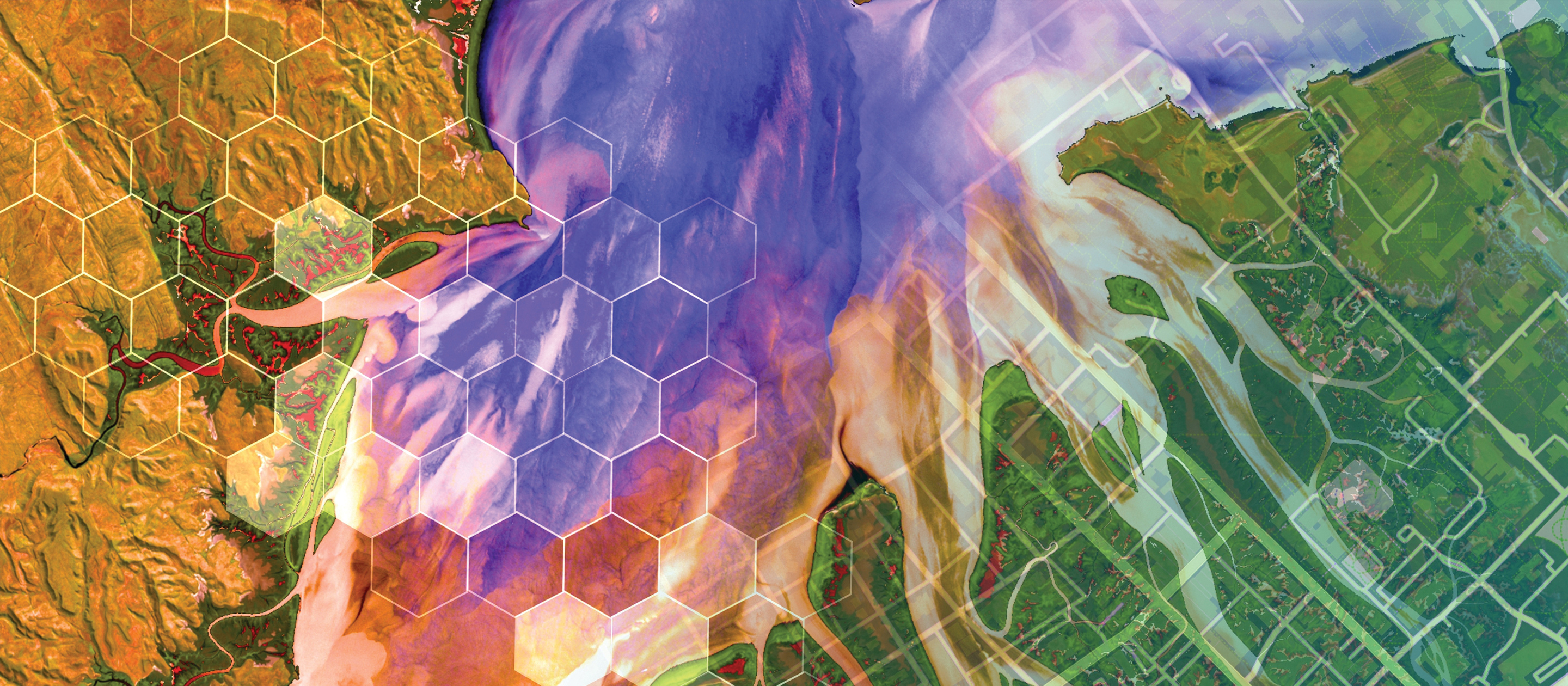Credits and costs
Enhance Your Penn State Degree
Add a minor to get even more value out of your education.
Gain Specialized Knowledge
Earning a minor enables you to complement your major, pursue a personal interest, or explore a different field of study.
The field of geography encompasses both social-behavioral and environmental sciences. Because of this, Penn State World Campus has partnered with the College of Earth and Mineral Sciences to offer an undergraduate Minor in Geography (GEOG) that can complement most majors in the social sciences, physical sciences, biological sciences, and technical disciplines.
The 18-credit geography minor introduces you to a broad range of concepts in areas such as:
- sustainability and human-environment systems
- energy policy
- global warming
- cartography, remote sensing, and geographic information systems
- geopolitics
The courses are designed to provide you with a basic understanding of how geography can be used to describe, analyze, and explain the arrangement of human and physical features on Earth’s surface. This can help you to understand how and why people use environmental resources the way that they do.
The knowledge and skills that you gain with this minor can help prepare you to work in a variety of fields, including:
- business
- resource management
- geographic information systems, remote sensing, and photogrammetry
- policy analysis
- urban and regional planning
This minor is open to all interested undergraduate World Campus students who meet the prerequisites. Students of energy and sustainability policy or business may find this minor particularly useful.
Courses
The 18-credit Minor in Geography is composed of one prescribed and five elective courses. Your elective courses will be selected from a list of available courses in geography and can include a particular content emphasis such as environmental issues or urban and regional planning.
Requirements for the minor —18 credits chosen in consultation with a geography adviser:
- Select 3 credits in physical geography (GEOG 1N or 3N or 30N or 430)
- Select 3 credits in human geography (GEOG 1N or 2N or 3N or 30N or 430 or 432 or 438W)
- Select 6 credits of additional geography courses (GEOG 1N or 2N or 3N or 6N or 430 or 432 or 438W)
- Select 6 credits of 400-level geography courses (GEOG 430 or 432 or 438W)
All courses taken for the minor must be completed with a grade of C or higher.
Required Course (3 credits)
Additional Courses (select 15 credits)
- or:
Course Availability
If you're ready to see when your courses will be offered, visit our public LionPATH course search (opens in new window) to start planning ahead.
Costs and Financial Aid
Undergraduate Tuition
Undergraduate tuition is calculated based on the number of credits for which you register and the number of total credits you have accrued at or transferred to Penn State.
Tuition is due shortly after each semester begins and rates are assessed every semester of enrollment.
| How many credits do you plan to take per semester? | If you have 59 or fewer credits | If you have 60 or more credits |
|---|---|---|
| 11 or fewer | $626 per credit | $671 per credit |
| 12–19 | $7,602 per semester | $8,206 per semester |
Undergraduate students taking more than 19 credits will be charged the flat tuition rate plus the regular per credit hour rate for each credit above 19.
| How many credits do you plan to take per semester? | If you have 59 or fewer credits | If you have 60 or more credits |
|---|---|---|
| 11 or fewer | $632 per credit | $678 per credit |
| 12–19 | $7,678 per semester | $8,288 per semester |
Undergraduate students taking more than 19 credits will be charged the flat tuition rate plus the regular per credit hour rate for each credit above 19.
Financial Aid and Military Benefits
Some students may qualify for financial aid. Take the time to research financial aid, scholarships, and payment options as you prepare to apply. Military service members, veterans, and their spouses or dependents should explore these potential military education benefits and financial aid opportunities, as well.
To view the detailed list of cost of attendance elements, select “World Campus” as the location on the tuition site.
How to Apply
Deadlines and Important Dates
Admissions Help
Please work with your adviser if you have questions about adding a minor. You can find your adviser's contact information in your student portal or by calling advising at 814-863-3283.
Admission Requirements
To be eligible for admittance into the geography minor, you must:
- be a current Penn State undergraduate student in your fifth semester and be in a bachelor's degree major
- maintain a grade of C or better in all courses for the minor
- confirm that the minor code and major code do not match
Adding a Minor
If you have achieved fifth-semester standing (60 credits completed), you can apply for admission to the minor. To begin, please follow these steps:
- Talk with your academic adviser about incorporating the minor into your major and to develop a semester-by-semester plan for meeting requirements.
- You can apply for the minor by adding it in LionPATH. You should do this as early as possible, but you can apply up to the late drop deadline of your graduating semester.
- You will receive a confirmation email once you declare the minor in LionPATH.
Technical Requirements
Review the technical requirements for this program.
Contact Us
To learn more about the Minor in Geography, offered in partnership with the College of Earth and Mineral Sciences, please contact:
Susan Spaugh
Program Assistant
2217 Earth & Engineering Sciences Building
University Park PA 16802
Email: [email protected]
Phone (toll-free): 877-713-7778
Phone: 814-863-2502
Fax: 814-863-1564
